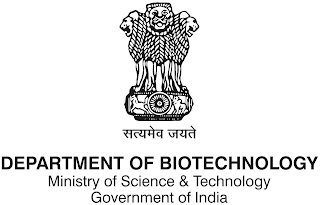
UMMID Component
The UMMID Initiative has been implemented to address the burden of genetic disorders in the country through establishment of three components: NIDAN Kendras (genetic diagnosis centres), outreach to aspirational districts for antenatal & newborn screening, and training centres for capacity building among Government doctors.
II. Screening of pregnant women and newborns in Aspirational Districts
In this component of the DBT-UMMID initiative, institutions with the requisite infrastructure and expertise to carry out genetic screening of pregnant mothers and newborns would adopt aspirational district(s) in collaboration with the concerned district hospital(s) to undertake the following activities:
A. Screening of pregnant women for genetic disorders such as:
i. Beta thalassemia, sickle cell disease, and other hemoglobinopathies
ii. Other genetic disorders prevalent at a relatively higher rate in the region for which antenatal testing methods are available
iii. For significant Data set 8000-10000 screenings should be carried out
B. Newborn Screening for relatively common treatable genetic metabolic disorders including:
i. Congenital hypothyroidism
ii. Congenital adrenal hyperplasia
iii. Galactosemia
iv. Biotinidase deficiency
v. Glucose-6-phosphate dehydrogenase (G6PD) deficiency
vi. Other treatable genetic metabolic disorders prevalent at a relatively higher rate in the region
vii. For significant Data set 4000-5000 screenings should be carried out
C. Genetic Counseling: Genetic Counseling of pregnant mothers carrying fetuses with high risk of genetic disorders.
D. Training to paramedical health workers: Training on identification of families and children with a high risk of genetic disorder to paramedical health workers including nurses posted in neonatal/pediatric and maternity wards.
Involvement of all relevant stakeholders such as concerned District Hospital(s) of the Aspirational District (s) and the State Government etc. is compulsory.
III. Establishment of Training Centres on Clinical Genetics
This component of the UMMID initiative envisages supporting establishment of training centres for providing training to the clinicians working in hospitals in Biochemical Genetics, Cytogenetics, Molecular Genetics, Clinical Genetics and Comprehensive clinical care. The host hospital/medical college should undertake the overall responsibility of implementing the project and should be willing to provide basic infrastructure including dedicated space and equipments for the establishment of the training centres. Minimum No. of trainees to be trained per year is 4.
IV. APEX Centre
There is a need for establishment of a Nodal Centre, which can work as interface between various programs of UMMID initiative with the overall objective of enhancing and highlighting combined impact of various programs supported by this initiative. The establishment of the DBT-Apex Centre on UMMID Initiative at CDFD will help in streamlining the activities under UMMID initiative including documentation of call for proposals, progress reports, utilization certificates etc. Impact analysis will help to identify areas for new interventions, potential collaboration between medical and scientific institutions and scope for supporting projects for large scale data generation.
- Creation and maintenance of an online data entry website to obtain and collate the information from the existing UMMID centres
- Validation of results for tests done at individual DBT UMMID centres for both diagnostic as well as screening of genetic diseases
- Impact analysis of ongoing and completed projects
a. Appropriately catalog the outcomes in terms of testing for genetic diseases, trained manpower in genetic diagnostics, achievements in aspirational districts, and publications/leads.
b. Identify areas for new interventions, potential collaboration between medical and scientific institutions.
c. Cataloging of data in the form of a searchable computerized database.
- Analysis of the resource requirement of new projects
a. Identify feasibility/mechanism for inclusion of more UMMID centres and provide suggestions to Expert committee.
b. Conduct resource requirement analysis in aspirational districts
- Administrative and financial co-ordination of the programme


